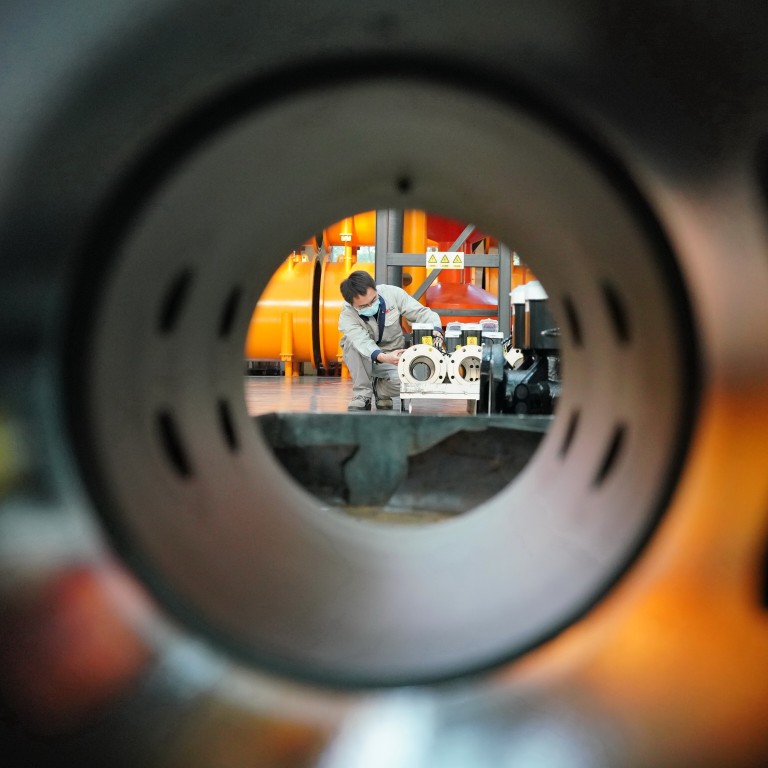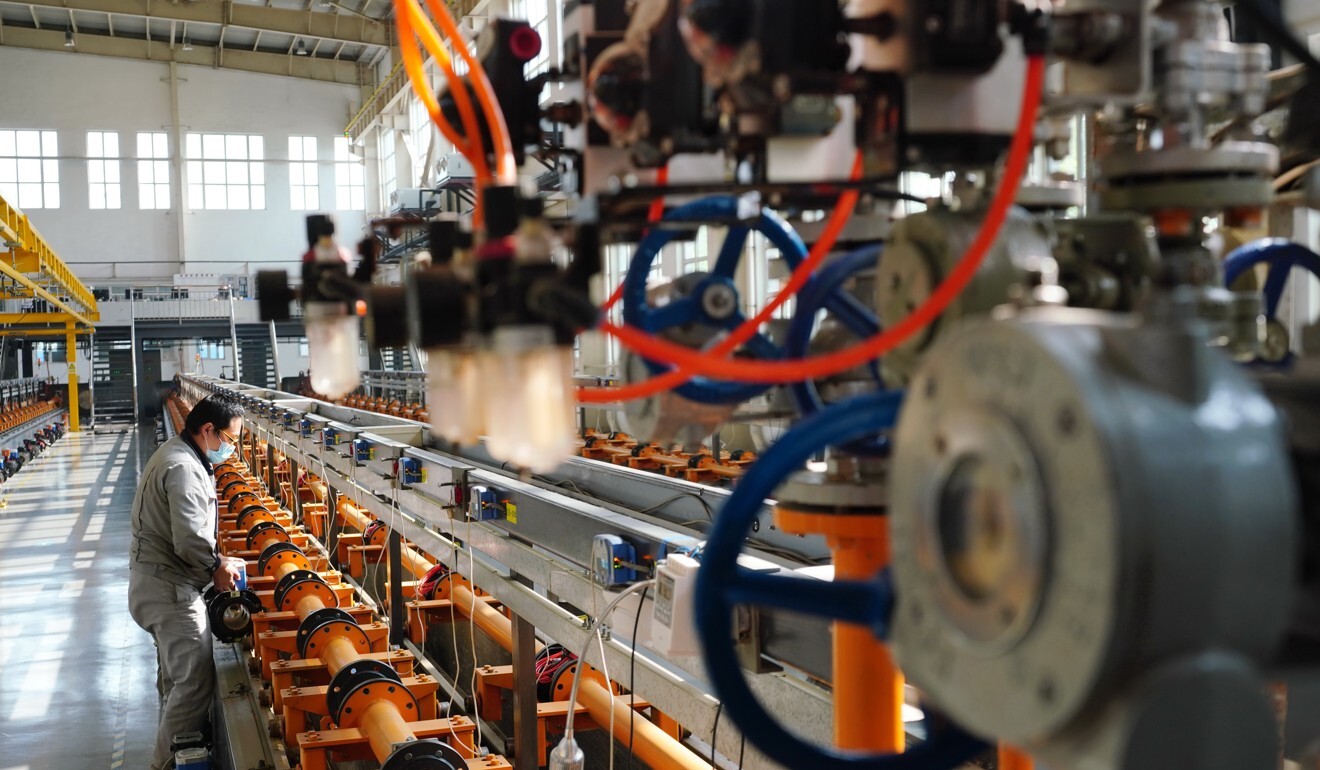
Leave China? No thanks, some Japanese firms say to Tokyo’s cash incentives
- Toyota is among the firms who say they have no plans to change their strategy in China, as Tokyo offers subsidies to encourage supply chain diversification
- Analysts say the companies are being careful with their comments. But leaving the world’s second biggest economy isn’t going to be that easy or desirable
All five Japanese companies spoken to by This Week in Asia for this article said they intended to continue to manufacture in China on the grounds that it remains a critically important market and that it would be expensive and unnecessarily disruptive – particularly at the present time – to relocate a large part of their operations elsewhere.
Coronavirus: why Asia will win the race to economic recovery
Household fittings and construction materials provider Lixil Corporation released a similar statement saying it had no plans to move production out of China. “We operate a flexible global supply chain with more than 100 manufacturing bases worldwide. This flexible and fully integrated structure has enabled us to absorb some of the impact of Covid-19,” it said.

A third Japanese manufacturer, which did not want to be identified, said it would continue to make its goods in China as it “designs products for China and we sell them in China” and that moving elsewhere would make little business sense.
The move came after car companies and other manufacturers suffered shortages of parts from China, when production was temporarily shut down across most of the country earlier this year in an effort to curb the virus’ spread. Parts made by Chinese partners or Japanese subsidiaries in China are used to build engines, electrical systems, interior fittings and moulded plastic components for the automotive industry. As well as being exported to Japan, these parts are also used at Japanese carmakers’ plants in China.
Dependent on China? How Japan wants to tackle virus disruption
Another concern has revolved around the theft of Japanese firms’ intellectual property, while there have also been rumblings of discontent within some governments about collaborations with Chinese companies that might compromise national security.
Yet analysts say Japanese companies still see an upside to remaining in China.

“These companies are going to be very careful about what they say, whether or not they actually want to move elsewhere,” said Ivan Tselichtchev, a professor at the Niigata University of Management. “They want to keep relations with the Chinese government in a good state.”
Even with financial support from the Japanese government, shifting production to a new facility or even a new country will inevitably be very costly, Tselichtchev said, not least because of the cost of compensating staff and business partners if the company should opt to leave China.
Similarly, the paperwork involved would be time-consuming and expensive, he said, while Chinese authorities could intervene to make the procedures even more complicated as a disincentive to leave.
It’s not simply a case of shutting up shop in China and moving somewhere else
“Companies do not want to talk about sensitive matters like this because it could, theoretically, invite retaliation from China,” said Jun Okumura, an analyst at the Meiji Institute for Global Affairs.
Okumura said he believes biggest change to come from the pandemic will be that many firms will make preparations that allow them to be more flexible if disaster strikes in one location by building additional production facilities in Southeast Asia, for example.
Tselichtchev said the process of diversification has already begun in some sectors, in large part driven by rising labour costs, but he said he does not anticipate “a large-scale exodus” from China as a direct result of the Japanese government’s offer.
Okumura agrees. “I’m not sure just how effective the Japanese government’s efforts will be,” he said. “The whole world has been affected by this pandemic so it’s not simply a case of shutting up shop in China and moving somewhere else.”
Help us understand what you are interested in so that we can improve SCMP and provide a better experience for you. We would like to invite you to take this five-minute survey on how you engage with SCMP and the news.

